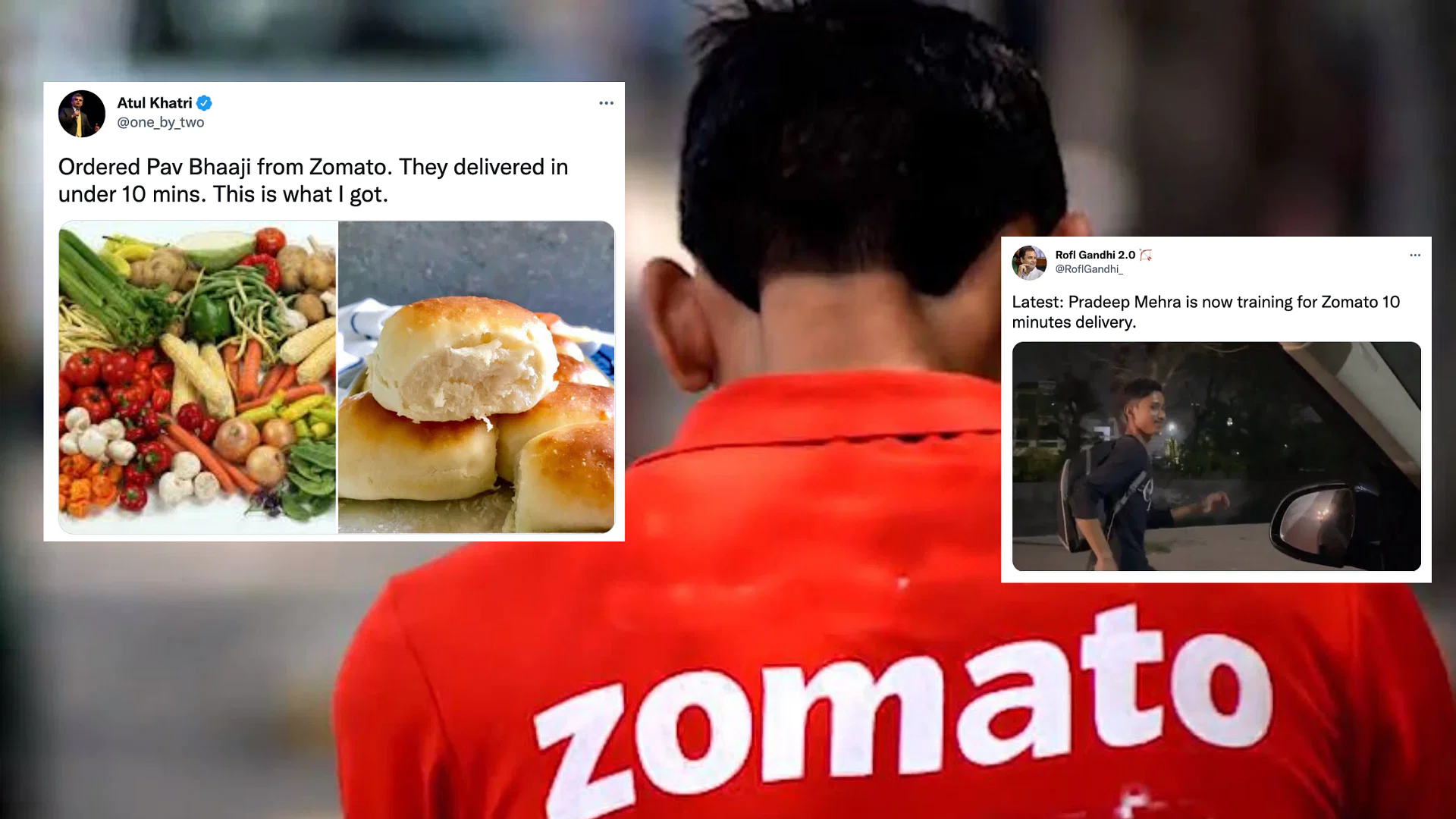Zomato’s recent declaration that it can deliver meals in 10 minutes has sparked outrage, with delivery worker unions, MPs, eateries, and the police all raising warning flags.

Stakeholders from all walks of life have expressed worry that the compressed delivery timeframe will put further strain on already overworked delivery personnel, perhaps leading to aggressive driving and traffic offences.
Zomato plans to start with four finishing stations in Gurgaon as a test initiative, with the goal of completing speedy 10-minute deliveries from a “finishing stations’ network” positioned adjacent to high-demand consumer neighbourhoods. The company’s assurances that it will not place any pressure on delivery employees to deliver quicker have failed to allay worries about gig workers’ working conditions.
The Telangana Gig and Platform Employees Union, in a strong response to Zomato’s decision, stated that the company should treat its delivery workers “as human beings,” rather than “data points” for an algorithm to govern. The organisation represents over 30,000 gig workers who work for firms such as Zomato, Swiggy, Uber, and Ola.
Karti Chidambaram, a Congress MP who has previously expressed concern in Parliament about the absence of social security protections accessible to gig workers, dubbed Zomato’s 10-minute delivery programme “absurd.”
In reaction to the company’s statement, he tweeted, “It’s going to put unfair pressure on the delivery guys, who are not employees and have no benefits or security, who have no negotiating leverage with Zomato.”
Chidambaram has also written to the publicly traded company, requesting information on the average daily earnings of Zomato’s delivery workers, as well as whether the company has assessed whether the incentives imposed on its delivery workers have resulted in dangerous consequences such as rash driving and traffic violations.
According to Madhya Pradesh Home Minister Narottam Mishra, the fast delivery timeframe may cause delivery staff to break traffic regulations.
“Zomato’s ambition to deliver food in 10 minutes is akin to gambling with the lives of its employees (delivery partners) and other individuals. Not just Zomato, but no one in Madhya Pradesh will be permitted to break traffic laws. “I’m pleading with Zomato to reconsider its intentions,” Mishra added.
To answer worries that workers may engage in reckless driving to meet the 10-minute deadline, Zomato has stated that staff will normally ride for 3 to 6 minutes at an average pace of roughly 20 kilometres per hour to accomplish a speedy delivery. That promise, however, was insufficient.
While promoting fast deliveries, companies like Zomato “wash off their hands by concealing how they structure the work to portray as if delivery workers are independently engaging in traffic violations and hazardous driving conditions risking themselves and other pedestrians on the road,” according to Shaik Salauddin, national general secretary of the Telangana gig union.
He claims that these platforms’ incentive-driven work environments “incite delivery employees to chase those incentives objectives and pushes them to resort to such activities.”
The problem of aggressive driving by delivery employees of these companies was discussed in a meeting on Friday between representatives of Zomato, Swiggy, and authorities from Greater Chennai’s traffic police. Zomato has notified the department that its 10-minute food delivery experiment would only be launched in select locations throughout India, and that if it does, it will only do so after proper notification and consultation with the police department.
While the Zomato trial will begin with “finishing stations” that will most likely have a few popular meals ready to go, eateries have raised reservations about the quality of food that can be delivered in under 10 minutes.
“The preparation of fresh food at restaurants is a culinary art, and we are worried that the essence of the food sector should not be lost in this race for shorter turnaround times,” Prakul Kumar, general secretary of the National Restaurants Association of India, told The Indian Express.
